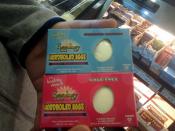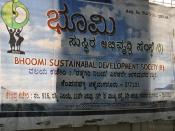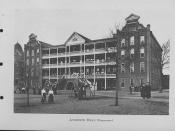May 16, 2003
Table of Contents
1. Introduction......................................................................................(3)
2. Theory behind "We are what we eat"
Post modern views on "Consumption" and "Self Concept"...........................(4)
3. Greens in Senate, Organics in the Market
Brief summary on consumption of organic products..................................(5)
4.Who is buying Organic Food ?..............................................................(6)
5. Why people buy organic? What do they "expect"?
Motivation and Organic Product............................................................(7)
6. What should and could be done?
Marketing Implications.........................................................................(10)
7. It is a rare chance
Conclusion........................................................................................(11)
8. References.......................................................................................(12)
1. Introduction
Although most of the food purchasing decisions are assumed to be low involvement, habitual decisions, the newly emerging product category of Organics has started to challenge this assumption during last decade.
The purpose of the paper is to analyse the demand for products with the adjective of "Organic". Our attempt will be to think through their relation with the environmentalist movement and related social trends; to look at the post modernist view of self and its relation with the public sphere, new social movements and consumption; and finally we will question the consumer's motivation to purchase such products.
The organics category can be applied to a wide rage of products from soap to candles and the theories discussed below can be applied to most of these different products however, our examples and discussion focus will be limited to organic food products.
It all started with the hippies
roots of environmental movements and their effect on social trends and life style
The most active period of social movement rhetoric in the 20th century was the 1960s. These new social movements did not seem to fit the model of Marxian class conflict but they gave a greater emphasis on group or collective identity, values and lifestyles rather than developed ideologies. Environmentalism as a social movement rooted itself to public and political agenda...


